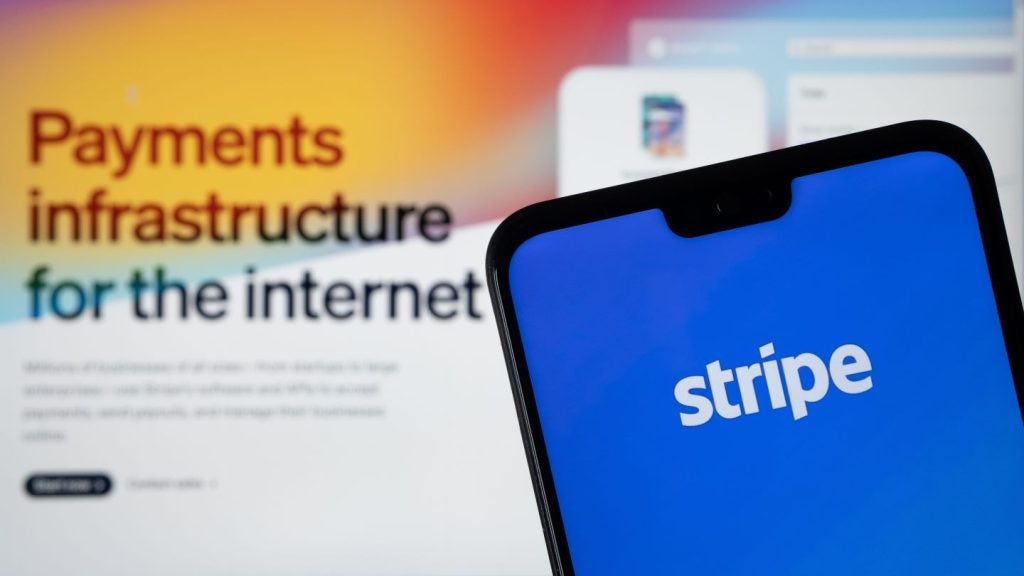In the year and a half since Brazil’s
card acquiring market was liberalised, the prospect of competition
has led the two incumbent acquirers to cut prices. However,
competition still has room to grow. Robin Arnfield
reports
Until July 2010, the two dominant Brazilian
acquirers were each affiliated with only one major card brand. Itaú
Unibanco-controlled Redecard had exclusive rights to MasterCard
acquiring, while Cielo, under its previous name VisaNet,
exclusively acquired Visa. Merchants wanting to acquire both Visa
and MasterCard had to install both Redecard and VisaNet terminals,
which effectively limited competition.
In July 2010, the exclusive relationship
between Visa and Cielo ended, which enabled Cielo and Redecard to
begin acquiring both Visa and MasterCard.
“Since the end of exclusivity, Cielo and
Redecard have been competing aggressively to acquire merchants, and
they now both accept over 20 different card brands, including local
credit card brands and international brands such as Diners,”
Richard Speer, chairman of US consultancy Speer & Associates,
says. “They are both running incentive programs and loyalty schemes
to stop their merchant clients from defecting to other acquirers.
For example, Redecard has given free cellphones to merchants along
with $2 million worth of free airtime. Cielo is running a coupon
program that tracks card usage in stores and gives frequent
shoppers loyalty rewards.”
“The background to the July 2010
liberalisation was that the Banco Central do Brasil (Brazil’s
Central Bank/BCB), said in its March 2009 payments industry report
that there were inefficiencies in the acquiring market, and that
the two acquirers (VisaNet and Redecard) were essentially an
oligopoly and making too much money,” says Saul Martinez, J.P.
Morgan’s executive director, equity research, Latin American
financials and Brazilian merchant acquirers. “The report
recommended that VisaNet’s exclusive relationship with Visa should
come to an end.”

US Tariffs are shifting - will you react or anticipate?
Don’t let policy changes catch you off guard. Stay proactive with real-time data and expert analysis.
By GlobalDataCurrently, three smaller card brands are still
handled on an exclusive basis. Cielo, which is controlled by Banco
do Brasil and Bradesco, acquires card transactions for Elo, the
domestic-only debit and credit card scheme launched by Banco do
Brasil and Bradesco in 2010. It also acquires American Express
cards on behalf of Bradesco, which has the Amex franchise in
Brazil. Hipercard, a private-label card brand which is owned by
Itaú and accepted at Brazilian retailers such as Walmart, Bompreço
and Maxxi, is acquired by Redecard.
“The BCB is expected to release a new payments
industry report soon,” says Martinez. “It’s conceivable that this
report might say the BCB wants Amex, Elo and Hipercard to no be
longer exclusively handled by one acquirer.”
However, Fernanda Rezende, a director at Fitch
Ratings Brazil, isn’t convinced the new report will recommend
changes to the acquiring market. “It’s difficult to predict
regulatory changes,” she says. “But we don’t expect a significant
change in the regulatory front in the short term.”
Prices
“One immediate result following liberalisation
was that merchant discount rates (MDRs) declined sharply in Brazil
in the second half of 2010,” says Martinez. “However, in 2011, MDRs
declined at a slower rate. We will see a five basis point decline
in MDRs for Redecard and Cielo in 2012.”
Currently, Brazilian terminal rental rates are
extremely high, says Martinez. “I think that POS terminal rental
fees will decline over the longer term by five percent a year,” he
says. “In 2010 and early 2011, terminal rental fees did fall, but
then the rates rose again in the second and third quarters of 2011.
The reason for this is that the acquirers have not been giving
substantial concessions on terminal rental prices or MDRs to
smaller merchants. Most of the big merchants own their own
terminals.”
A third revenue stream enjoyed by Brazilian
acquirers is factoring of merchants’ receivables. “A unique
characteristic of Brazil’s cards industry is that Brazilian
acquirers don’t offer merchants overnight settlement,” says Speer.
“Instead, they settle in 30 days and offer merchants a next-day
advance on that settlement at high interest rates. As acquirers
move to settle more rapidly with merchants, and as factoring prices
go down due to greater competition, then the acquirers’ lending
business will decrease significantly.”
“There is competition from the banks in
factoring merchants’ receivables,” says Martinez. “But I don’t
think the banks will move very aggressively into the merchant
receivables market because the Brazilian economy is beginning to
slow down.”
J.P. Morgan has revised downwards its
estimates for Brazilian GDP growth in 2011 and 2012 from
respectively 3.4 percent and 3.8 percent to 3.3 percent and 3.4
percent. One consequence of economic slowdown will be a decline in
cards industry growth. “Payment card volumes will grow by 15+
percent a year instead of the 20+ percent growth rate that the
cards market has seen in the past,” says Martinez.
ABECS (Associação Brasileira das Empresas de
Cartões de Crédito e Serviços), the Brazilian credit card trade
association, estimates that in 2011 overall card transaction volume
(credit/debit/store cards) will rise by 17 percent year-on-year to
8.29 billion, while the total value of transactions will rise by 23
percent year-on-year to BRL 667.18 billion ($369.44 billion). In
October 2011, the total number of payment cards in issue in Brazil
was 675.3 million, up from 628 million in December 2010, ABECS
says.
New entrants
Currently, Redecard and Cielo jointly hold 90
percent of the Brazilian acquiring market, says Rezende. US-based
First Data, Global Payments and Elavon have publicly stated their
intention to enter the Brazilian acquiring market, with operations
expected to be launched in 2012.
Elavon, which is owned by U.S. Bank, formed a
joint venture with Citigroup’s Brazilian credit card issuing arm
CrediCard in December 2010 and appointed former VisaNet executive
Antonio Castilho as president of Elavon Brazil. “Our Brazilian
operation will be up and running in the first half of 2012,” says
Elavon US spokeswoman Holly Lyttle.
“Elavon says it wants to have a 15 percent
share of the Brazilian acquiring market,” says Speer. “Citi, which
is a corporate bank, not a retail bank, in Brazil, has banking
relationships with big Brazilian merchants and airlines. So it has
the potential to introduce Elavon to important merchant clients,
making Elavon a good competitor to Cielo and Redecard. Both Elavon
and Global Payments are currently hiring Brazilian sales
forces.”
In March 2010, Santander Brazil formed an
acquiring joint venture with Brazilian acquirer GetNet Tecnologia
called Santander GetNet. According to Martinez, Santander GetNet’s
market share is in the low single digits, which the firm has stated
it wants to grow to 10 percent in 2013.
“Santander GetNet hasn’t been very aggressive
as it wanted to make sure its acquiring platform is fully
operational before signing up new clients,” Martinez says. “But
there has been some speculation that Santander GetNet will become
more aggressive in the market. In a recent investor presentation,
Cielo said that it thinks Santander GetNet should reach its 10
percent market share target in 2013.”
Santander has 10 percent of the overall
banking market in Brazil, and wants to use Santander GetNet to
expand its SME portfolio. “Offering acquiring services is a good
adjunct to Santander’s business banking product portfolio,” says
Martinez. “Of all the new entrants to the Brazilian acquiring
market, Santander GetNet is the player most likely to take some
market share from the incumbents in the next few years.”
In June 2011, Brazilian news agency Estado de
Sao Paolo reported that BR Distribuidora, a fuel distributor owned
by Brazilian oil company Petrobras planned to set up an acquiring
joint venture with Brazil’s Banco Fator and car fleet management
firm CTF Technologies for the petrol station market. First Data
will reportedly act as processor for the acquirer which will
compete with Cielo and Redecard.
First Data, which has been an issuer-processor
in Brazil since 2002, thinks it can do very well as an acquirer in
certain segments of the Brazilian market, says Speer. “First Data
says it will partner with large Brazilian acquirers and also work
with retailers wanting to acquire their own (private-label) cards
and with regional banks wanting to do their own acquiring,” he
says.
Speer thinks that in the next three to five
years a dozen companies in total will enter the Brazilian acquiring
market. “Apart from Cielo and Redecard, there is room for one or
two major players in the Brazilian acquiring market,” he says. “Out
of the 12 launches, I think that only half will survive, and only
one or two will have 10+ percent market share. Competing with Cielo
and Redecard will be very difficult, as they are very sophisticated
players. Also, acquiring in Brazil is a scale business, and
currently only Cielo and Redecard have any scale.”
As at 30 September 2011, Cielo had 1.15
million active, affiliated merchants and 1.4 million POS terminals.
Redecard, which does not disclose its merchant numbers, had 1.1
million terminals, says Martinez.
“Given the barriers to entry, Redecard and
Cielo’s market share losses will likely be limited in the medium
term,” says Fernanda Rezende, a director at Fitch Ratings
Brazil.
Banricompras
In the Brazilian state of Rio Grande do Sul,
Redecard and Cielo face competition from Banricompras, the merchant
acquiring arm of regional bank Banrisul (Banco do Estado do Rio
Grande do Sul). In August 2010, Banricompras received a licence
from MasterCard Brazil to become a MasterCard acquirer, using
Brazilian IT firm CSU CardSystems as its processor. Prior to July
2010, Banricompras had only been able to acquire Banrisul’s
proprietary debit cards.
In April 2011, Banricompras started acquiring
Maestro, Cirrus, MasterCard’s Redeshop Brazilian debit brand, and
MasterCard credit card transactions over its network. In July 2011,
Banricompras began acquiring Verdecard (Verde Administradora de
Cartões de Crédito) private-label credit cards, which are issued by
Rio Grande do Sul-based retailer Quero-Quero. Currently,
Quero-Quero has 2 million Verdecards in issue.
In October 2011, Banricompras signed an
agreement to acquire Visa-branded credit, debit and prepaid cards.
“We expect to start acquiring Visa by the end of the first quarter
of 2012,” says Alexandre Pedro Ponzi, Banricompras’ head of
investor relations.
In October 2011, Banricompras had 99,291
terminals on its network. “Banricompras operates mostly in Rio
Grande do Sul, with 95 percent of our merchants being located in
that state,” says Ponzi. “However, we can go nationwide in the case
of large retail chains that have branches in major cities
throughout Brazil as well as in Rio Grande do Sul. Three percent of
our merchants are located in the state of Santa Caterina and two
percent are in other states.”
Banrisul expects Banricompras’ proprietary
debit card transaction volumes to grow by about 15 percent
organically, not including acquiring transactions from other card
brands or transactions made by Banrisul Serviços customers, says
Ponzi. Banrisul Serviços provides prepaid meal and food cards as
well as fuel/fleet maintenance cards.
For Banrisul’s proprietary debit cards alone,
Banricompras saw transaction volumes rise from 51 million in the
first nine months of 2010 to 56 million in the first nine months of
2011, while the value of transactions rose from BRL 3.38 billion to
BRL 3.90 billion during the same period.
New market segments
“Cielo and Redecard are both focusing on new
vertical markets such as healthcare, transportation, and private
education, where there hasn’t been much card penetration,” says
Speer. “They are also both interested in mobile payments and
prepaid cards. With the 2014 Football World Cup taking place in
Brazil, Cielo and Redecard are expanding the brands they accept so
they can acquire international card brands used by foreign
tourists. Redecard started acquiring China UnionPay in June 2011,
and Cielo will likely sign a deal with CUP at some point.”
Brazilian newspaper Diario Comercio Industria
& Serviços reported in November 2011 that Redecard and Cielo
are among several companies holding talks to buy a majority stake
in Brazilian electronic toll collection company STP – Serviços
& Tecnologia de Pagamentos (Payments Services &
Technology).
In May 2011, Cielo bought 100 percent of the
equity of Braspag – Tecnologia em Pagamento (Technology in
Payment), which has around 65 percent of the Brazilian e-commerce
payment processing market.
In August 2010, Cielo bought a 50.1 percent
stake in Brazil’s M4U which develops platforms for mobile airtime
top-up and m-payments. Cielo said in a statement that it would use
M4U’s technology to expand its share of the mobile airtime reload
market (Cielo already offered airtime top-up at its terminals).
Using M4U’s technology, it has launched apps that turn iPhones,
iPads, iPod Touches, and Android smartphones and tablets into Cielo
POS terminals for accepting Visa, MasterCard, Amex, Elo and
Brazilian regional credit card brand Aura.
In September 2010, Banco do Brasil and Cielo
formed an m-payments alliance with Brazilian mobile carrier Oi and
with Brazilian m-payments processor Paggo Adminstradora to offer
co-branded credit cards and prepaid cards that can be stored in a
mobile wallet and used to make payment via cellphone. As part of
the deal, they also formed a joint venture, Paggo Soluções de Meios
de Pagamento (Paggo Solutions for Means of Payment), to provide
m-payments acceptance at the point-of-sale over Cielo’s
network.
“Cielo has been more aggressive in purchasing
other companies than Redecard,” says Martinez. “For example, Cielo
has reduced its dividend payout ratio to 70 percent of net income,
while Redecard is still paying dividends at 90 percent of net
income. The reason that Cielo did this is because it wants to have
more cash available for selective acquisitions.”
Like Cielo, Redecard offers cellphone airtime
top-up over its network. It also offers a service enabling
merchants to use cellphones to accept card payments, and wireless
payments via mobile devices, where a card is stored in a mobile
wallet. In October 2011, Redecard had 35,000 merchants using
cellphones to accept card payments over its network, for example
taxi drivers and door-to-door salesmen.
Since December 2010, MasterCard has been
running a mobile payment and remittance pilot in the Brazilian city
of São José dos Campos with Itaú, Redecard and Brazilian mobile
operator Vivo. The MasterCard Mobile pilot enables Vivo subscribers
to link their Itaú MasterCard credit or debit card to their
cellphone for retail purchases, airtime reloads and remittances to
the Philippines, using a SIM card containing MasterCard’s
m-payments application.
According to Brazilian publication TeleTime
News, MasterCard, which launched a Brazilian mobile payments joint
venture with Vivo in November 2011, wants to negotiate with all
Brazil’s mobile carriers to put its m-payments application on their
phone SIM cards from 2012. TeleTime says this will represent the
commercial launch of the technology MasterCard has been testing
with Redecard, Itaú and Vivo.





